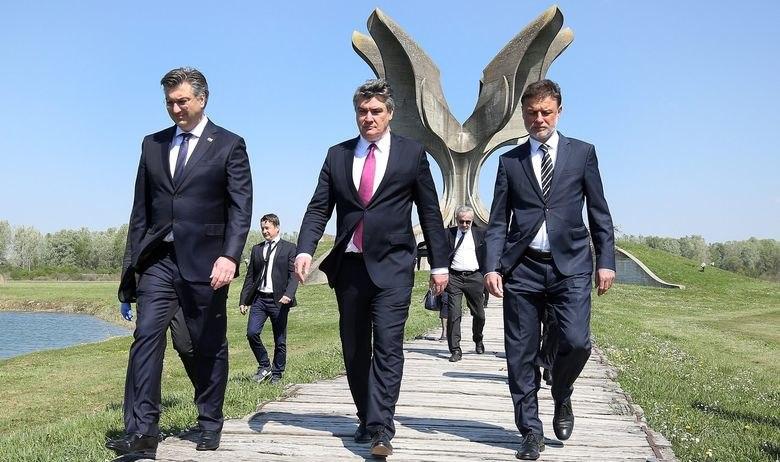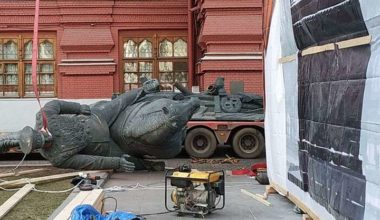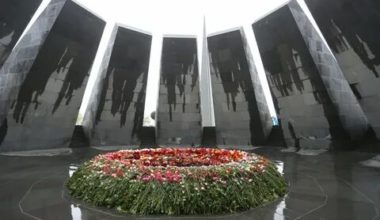Late in April of 2020, three Balkan countries together – Serbia, Croatia and Bosnia – carried out memorial events dedicated to the victims of Jasenovac concentration camp. That camp was built by the so-called Independent State of Croatia in August 1941. From 1941 to 1945, an estimated 80,000 to 700,000 Serbs, Jews, Roma and Croatian communists were killed in different facilities of the Jacenovac camp complex.
On April 22, 2020, Zoran Milanović (President of the Republic of Croatia), Gordan Jandroković (Speaker of the Croatian Parliament) and Andrej Plenković (Prime Minister) laid one wreath to the Stone Flower monument in commemoration of Jacenovac victims. The memorial ceremony was also joined by Deputy Speaker Siniša Hajdaš Dončić, Member of Parliament Davor Bernardić and Minister of Culture Nina Obuljen Koržinek.
Croatia’s top officials have abstained from Jasenovac memorial events since 2014, raising anger within Croatia’s Jewish community, the Serbian minority, the Roma minority and anti-fascist organizations that multiply accused the Croatian authorities of historical revisionism and Ustashe crimes relativization. This year, however, they all joined the high-ranking state officials during the ceremony, despite the coronavirus pandemic.
President Milanović said: “I am glad that, after a long time, we are finally on the same side. Taking account of the political situation and of what has happened in recent years, this is the first time we are together, three representatives of executive power as well as representatives of victims and anti-fascists.” Croatian Prime Minister added in his turn, “Our policy is based on the unequivocal condemnation of the crime, on sympathy for its victims, on raising the culture of remembrance, and on our constant concentrated effort focused on mutual understanding and tolerance in our society.”
Not surprisingly, the president’s words caused anger among the Croatian far-right. However, the reaction from anti-fascists and national minorities was totally different. “I see this as a step to overcome the consequences of 3 years of downplaying the Yugoslavian national liberation struggle systematically,” Franjo Habulin, the leader of Croatian anti-fascists, says. “This is an act of protest against historical revisionism in which Croatian statesmen have participated since the country gained independence. I see the latest public speeches of the present-day Croatian leaders as a victory to which I also contributed, unanimously condemning the consequences of the criminal Ustashe rule, exemplified in the Jasenovac camp.”
On April 23, the official commemoration day for Jasenovac victims, the leadership of Republika Srpska, an entity of Bosnia and Herzegovina, paid tribute to those killed. Among others, Russian Ambassador in Bosnia Peter Ivantsov took part in the 75th Jasenovac liberation anniversary memorial events, together with Milorad Dodik, member of the Presidency of Bosnia and Herzegovina, and Željka Cvijanović, President of Republika Srpska.
In the Serbian town of Srijemska Mitrovica, President Aleksandar Vučić visited the mourning ceremony that took place in the local memorial complex on April 26, 2020. The Serbian leader said in his speech that the Serbs would never forget the crimes committed during WWII: “No camp, no hammer, no knife or bullet, no mass grave and no crime committed against Serbian people. We will not forget any single name of those involved in the extermination policy carried out against Serbian people,” the Serbian president said.
The fact that both the Serbian and Crotian officials joined the Jasenovac commemoration events this year gives hope of a kind of reconciliation in the future.


